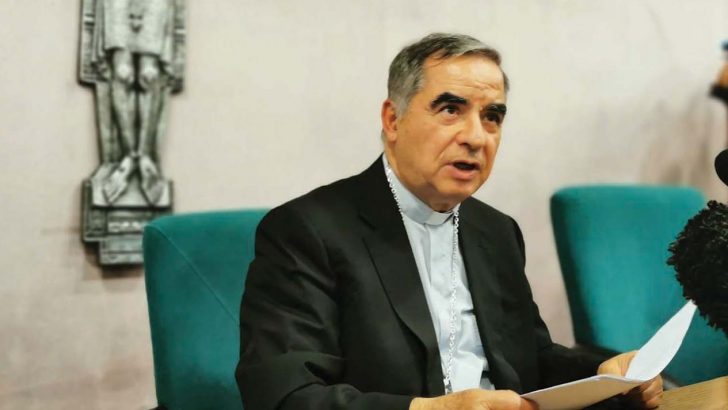The View
Strange things have happened in the Catholic Church during recent years. Once the hierarchy of the Church and her clergy seemed, to so many of us, to be in some way superhuman, immune to normal temptations, strongly united through the graces of ordination in defence of the Church and her people against the powers of evil in the world.
The priest was described as the ‘alter Christus’ – another Christ. In 1935, Pope Pius XI wrote of priests thus: “This is how one should regard us, as servants of Christ and ‘stewards of the mysteries of God’ (I Cor 4:1). The priest is the minister of Christ, an instrument, that is to say, in the hands of the Divine Redeemer. He continues the work of the redemption in all its world-embracing universality and divine efficacy, that work that wrought so marvellous a transformation in the world. Thus the priest, as is said with good reason, is indeed ‘another Christ’; for, in some way, he is himself a continuation of Christ. ‘As the Father hath sent me, I also send you’ is spoken to the priest, and hence the priest, like Christ, continues to give ‘glory to God in the highest and on earth peace to men of good will.’”
This was and remains totally true. Yet pictures from the days of my childhood showed grand prelates in silken robes sweeping through crowds of people who genuflected at their passing as if they were the Lord himself; there was kissing of rings, subservience, things that, for the most part, no longer happen today. It seems as if the sacredness and sanctity of priesthood and of the Church which these men were ordained to serve, became corrupted by the battle for the survival and growth of the Church in so many strange lands, and by the reality of power which evolved over centuries of struggle against the secular world.
Heroic missionaries
Simultaneously, good men and women travelled across the world. In many countries over long years, the work of many heroic missionaries resulted in the establishment and growth of Christianity. Like St Paul, whose travels we have been following in recent weeks at Mass, people travelled to foreign lands knowing that their life expectancy might be measured in months, not years because of the dangers which they faced, particularly the dangers of disease and rejection. Yet still they went. The Church became stronger because of their faith.
We know, too, that over the centuries some of those who have led the Church have ignored their fundamental calling to “give glory to God in the highest and on earth peace to men of good will”. Many of the lay Faithful, too, have done terrible wrong. It is not possible here to rehearse the many human failings of the Church which we all love – they are written in history.
The recent most fundamental betrayal – the abuse of little children by both priests and laypeople within the Church, and the failure of some of those in authority to deal with allegations properly – resulted in incalculable damage to those children, as did the equally prevalent abuse of children outside the Church. It also caused huge damage to faith in the Church across the world – something which today’s Church must try and repair in a spirit of humility and faithfulness.
Protection
We have now processes which, if properly resourced, could ensure proper governance of the protection of children and vulnerable people within the Church. Processes on their own are not enough, however, what must accompany the creation and adequate resourcing of such systems is consistency of proper response at all times, so that the Church can be seen to live the preached reality of the Gospels – that we should love one another as we have been loved. In all this, too, there must be an understanding that it is vitally important to hear each complaint with humility and compassion for both the accuser and the accused, and to provide proper care not only for the complainant but also for those against whom accusations have been made, whether they are guilty or not. It is a requirement of the systems in Ireland north and south that such complaints be reported to the State authorities for investigation, following which the complaints must be rigorously and fairly investigated by Church authorities. The processes of Canon Law for such investigations and judicial decision-making are in urgent need of reform and development to make them timely, fair and transparent.
There have been other betrayals too – the fruit of greed and other sin, including very significant abuse of power over Vatican funds much of which are donated by ordinary people – effectively theft, fraud and embezzlement. Yet we really are now seeing an unprecedented degree of accountability in the Church.
Last November saw the publication of the 500 page public report on the shocking allegations made by Archbishop Carlo Maria Vigano in relation to former US Cardinal Theodore McCarrick, during the papal visit to Ireland in 2018. In the lucid, evidenced and detailed report the failings of many, including Archbishop Vigano, were laid bare.
In January this year, the former president of the Vatican Bank was convicted and sentenced to eight years and eleven months for financial crime. Others were sentenced as well for their crime.
Trial
Most recently the Vatican announced that an Italian Cardinal, Angelo Becciu, and nine others have been ordered to stand trial on July 27 accused of financial crimes and corruption in connection with the misuse of Vatican funds. Cardinal Becciu and some of his co-accused have denied all the allegations against them, and they, like all other accused people are entitled to a presumption of innocence unless found guilty.
Determination
What is interesting about these developments is that they are further proof of Pope Francis’ determination to bring proper governance and process to the workings at the heart of the institutional Catholic Church, the Vatican.
Humankind is fragile. Even at the heart of the Church, and even among those ordained to priesthood, there will be those who do serious wrong. It is scandalous that matters had been allowed to develop so that such crimes, such immorality, could occur on such a scale in the Church founded by Jesus to carry on the great work of redemption in the world, and that in many cases the desire to protect the institution had become the dominant purpose. Pope Francis, and many others are working hard to address such evil. Much remains to be done and it will continue to be important that the Church everywhere, in all its dioceses, parishes and institutions, adopts the highest standards of governance and accountability, so that people can trust in the integrity of the Church. This will require ongoing investment, training and generosity by the people of God. The work of the Church has been much damaged by the failures of the past. We have a duty to ensure, as best we can, that such terrible failures do not recur. Our faith requires of us integrity, honesty and love – simple words we all know, mighty challenges to each one of us in our daily lives.


 Nuala O’Loan
Nuala O’Loan Cardinal Angelo Becciu speaks with journalists after he was asked by Pope Francis to resign as prefect of the
Congregations for the Causes of Saints last year. The cardinal is due to go on trial this month for alleged financial wrongdoing. Photo: CNS
Cardinal Angelo Becciu speaks with journalists after he was asked by Pope Francis to resign as prefect of the
Congregations for the Causes of Saints last year. The cardinal is due to go on trial this month for alleged financial wrongdoing. Photo: CNS 